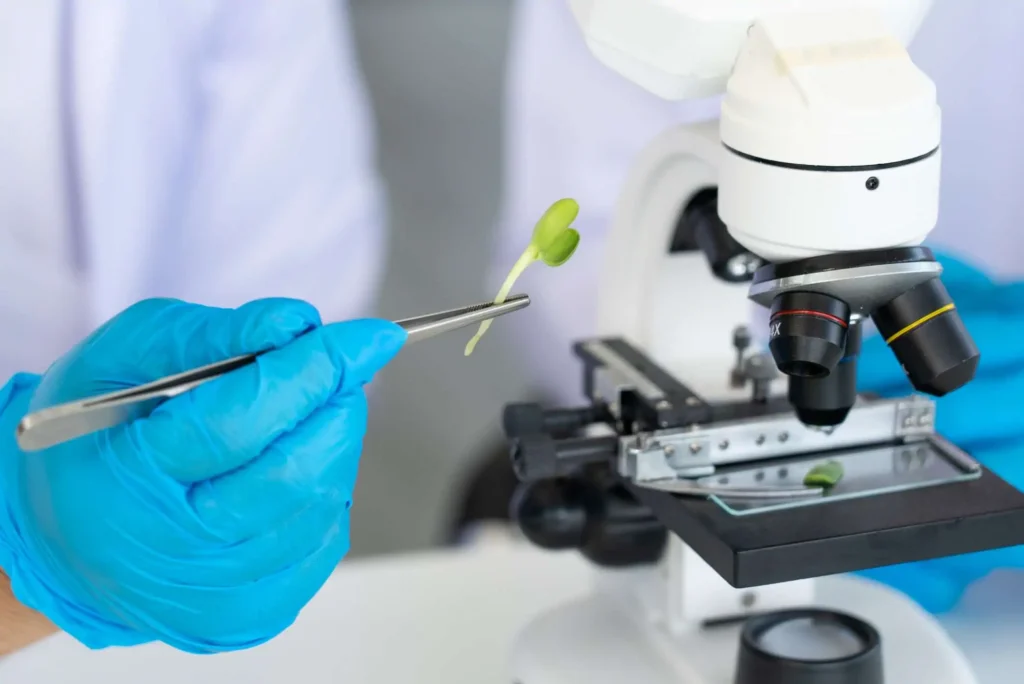
Definition: What is agricultural biotechnology?
Agricultural biotechnology is a field that combines molecular biology, engineering, and genetic modification to improve crops and create plants that are more resistant to pests and diseases.
With advanced techniques, we also have crops with higher yields, better quality, excellent resistance to climate change, and optimized use of resources such as soil and water.
Transforming agriculture through innovative use of biotechnology
Imagine crops that can resist pests and diseases, thrive in harsh environments, and deliver higher yields, all thanks to the magic of genetic engineering. Join us on this enlightening journey to unravel the mysteries and uncover the truths behind the remarkable evolution of agriculture through biotechnology.
The importance of agricultural biotechnology
Agricultural biotechnology has transformed how food is grown and produced worldwide, providing innovative solutions to the farm sector's challenges. Let's take a closer look at why agricultural biotechnology is so crucial:
Improving food security
Agricultural biotechnology has improved global food security by creating new crop varieties that can resist pests and diseases, increase yields and nutritional quality, and adapt to changing climatic conditions. These crops can help meet the food needs of a growing population.
Reducing environmental impact
Agricultural biotechnology is a future promise and a current reality promoting more sustainable farming practices. As tourists exploring new lands and cultures, we can advocate for these technologies by supporting sustainable products and staying informed about advances for a greener, healthier planet.
Advantages of agricultural biotechnology
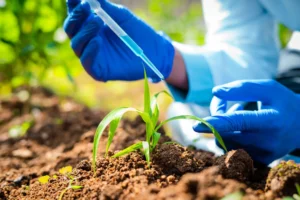
Agricultural biotechnology has become a key pillar for sustainable development and global food security. Its benefits are diverse, ranging from crop improvement to reducing environmental impact. In this context, exploring how it empowers modern agriculture is essential.
More Resilient and Productive Crops
First, one of the most prominent advantages of agricultural biotechnology is its ability to increase crop productivity. Genetic modification techniques can develop plant varieties that are more resistant to diseases, pests, and adverse weather conditions.
Efficient Use of Resources and Agricultural Waste Reduction
A significant advantage of biotechnology is its potential to promote environmental sustainability. Biotech crops can be engineered to use resources more efficiently, reducing the environmental impact of conventional agriculture.
Resilient Crops
Agricultural biotechnology plays a crucial role in adapting to climate change. Given rising temperatures and increasing climate variability, developing crops that thrive in extreme conditions is vital.
Vitamin and Mineral Enriched Crops
Agricultural biotechnology also has the potential to improve the nutritional quality of crops. Through biofortification, varieties with high levels of essential nutrients, such as vitamins and minerals, can be developed.
Plant Disease Detection
Biotechnology drives innovation in agriculture by facilitating the development of new technologies and farming practices. This includes developing molecular diagnostic tools that enable faster and more accurate identification of plant diseases, allowing more effective and timely responses.
Crop modification techniques
Innovation in modern agriculture has facilitated the adoption of biological methods that transform how food is grown. These natural techniques, which combine biotechnology with biological processes, allow farmers to maximize crop yields efficiently and sustainably, contributing to a healthier and more productive agricultural future.
Now let's look at some of the techniques we use at Vitcrop:
Use of earthworms and microorganisms for organic fertilizer production
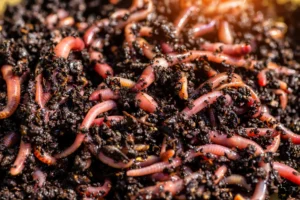
Incorporating earthworms and microorganisms in producing organic fertilizers has transformed agriculture, providing a sustainable and environmentally friendly alternative for nourishing crops. This innovative approach fuses agricultural biotechnology with organic practices, improving soil health, increasing microbial biodiversity, and promoting natural fertility efficiently.
Microbial cocktails to improve crops and soils
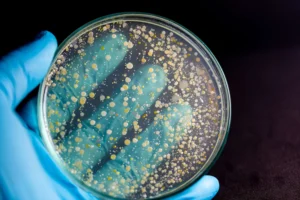
Microbial cocktails combine microorganisms such as bacteria, fungi, and actinobacteria to improve soil health and increase crop productivity. These mixtures are used in agriculture to create a healthier environment for plants by facilitating essential processes such as the decomposition of organic matter.
Use of Biological Bio-controllers: Bacteria and Fungi

In modern agriculture, biological controllers, such as bacteria and fungi, have transformed how pest problems are tackled, sustainable and environmentally friendly. These beneficial organisms become natural allies, fighting pests and diseases without synthetic chemicals. This protects crops, preserves soil health, and promotes biodiversity.
Nitrogen fixation with specific microorganisms
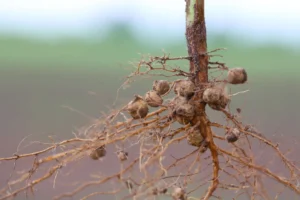
Nitrogen fixation by specific microorganisms is a crucial biological process that allows certain organisms to transform atmospheric nitrogen into forms usable by plants. This process is fundamental for agriculture, as nitrogen is essential for plant growth and development.
Commitment to Innovation and Sustainability

Agricultural biotechnology has revolutionized the rural landscape, offering innovative and sustainable solutions to the sector's challenges. A solid commitment to innovation and sustainability has promoted the development of crops with specific characteristics that benefit both farmers and the environment.
Ethical awareness and Biotechnology

Ethical awareness is essential in the development of agricultural biotechnology. This awareness helps guide technological decisions. Without a moral basis, developments can have negative consequences. Education plays a key role here. Educating people about biotechnology fosters a more profound understanding, allowing society to engage in informed debates.
Future of agricultural biotechnology and its impact on sustainable production
As the world's population continues to grow and the demand for food increases significantly, agricultural biotechnology is becoming an essential tool to meet these challenges. In a context where food security is increasingly crucial, this discipline offers innovative solutions capable of transforming the way we produce and consume food, ensuring a more sustainable and nutritious future for all.
